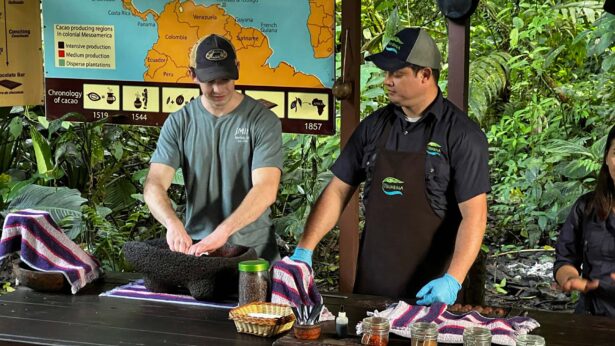
Happy couples and unhappy couples argue, but what distinguishes the two may not be so much what they argue about as it is about how they argue, according to Amy Rauer, UT Knoxville professor of child and family studies.
Rauer, also the co-director of the Relationships and Development Lab in the College of Education, Health and Human Sciences, examines how romantic relationships develop over time. In 2019, Rauer and three colleagues published a study in Family Process that explores how heterosexual couples argue and how what they argue about shapes their happiness.
Choose Arguments Wisely
“Happy couples often did not spend much time discussing what they themselves identified as the biggest issues in their marriages,” Rauer says, since the biggest issues tend to be harder to resolve.
Intimacy was identified as a top five issue for both husbands and wives in the 2019 study, and it was the only issue in which there was a significant gender difference in responses—with husbands evaluating intimacy as a more serious issue than wives.
Yet, rather than spending time discussing bigger issue topics like intimacy, happy couples discussed issues that tend to be more easily resolved, such as household chores.
Tread Lightly
Rauer says that “happy couples tended to actively avoid using the most negative behaviors,” including dominance and denial. Instead of leaning into these negative reactions, Rauer says happy couples “show positivity and responsiveness when discussing their relationship problems.”
Enjoy Each Other
Happy couples find humor in even the most difficult situations.
“Enjoying each other’s company—be it during fun activities or even challenging ones like discussing financial planning—can foster greater closeness and relationship satisfaction,” Rauer says.
Take the Long View
“Happy couples who have been together for decades realize that every relationship will have its share of conflict and that happily ever after has to be negotiated each and every day,” Rauer says.
Happy couples know that just because an issue arises one day—such as failing to put away laundry—does not mean the issue will necessarily be as consequential in the future.
Be a Teammate, a Coach and a Cheerleader
According to Rauer’s more recent research with Lyndsey Hornbuckle, a UT Knoxville associate professor in kinesiology, recreation and sport studies, happy couples consistently work together, encourage each other to succeed and celebrate each other’s successes.
Rauer says that couples who exhibit these qualities are “happier and healthier than those that do not share their struggles and their joys.”



